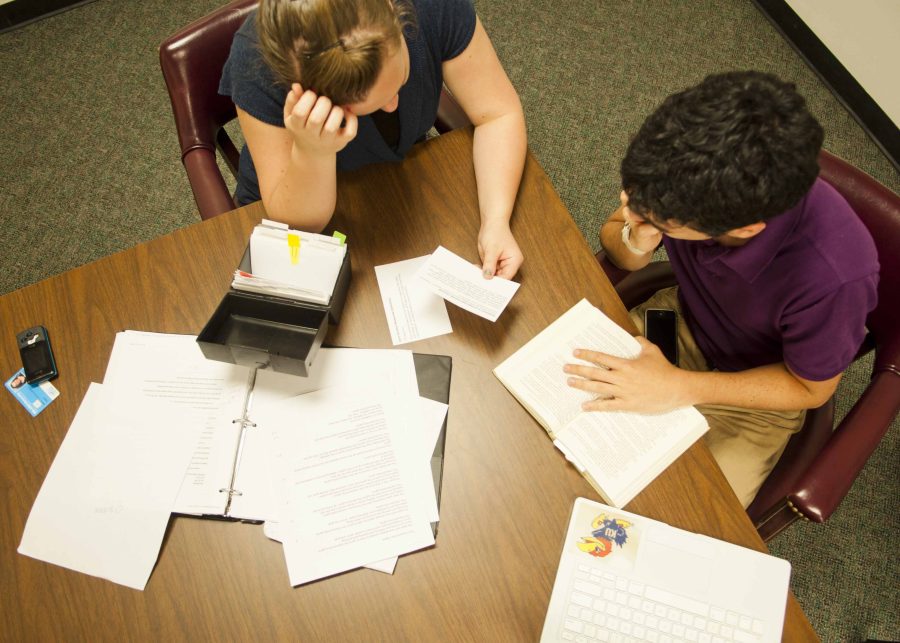The University Debate Association will have its championship tournament on Tuesday night, April 23, at 7 p.m. in Stratton Hall. Participants will debate gun control, specifically assault weapons.
The University Debate Association has 26 members who divide evenly into 13 debate teams. The groups are given the topic in February and are expected to develop both the pro and con sides of the argument. Miss Jeanine Aumiller is the head of the Debate Association, and she offers coaching to the teams who request her help.
Before the championship, the participants have debated two to three times in preliminary rounds. All other teams have been eliminated and the last two teams will debate for the grand prize of $100.
The University Debate Association uses a simple format that Aumiller described as “simple and conversational.” The debate starts with a three-minute scripted speech from each side, giving their reasons for or against gun control. The teams then question each other, looking for flaws in the other team’s arguments.
The refutation speech, an unscripted three-minute speech, is given from both sides directly refuting the other team’s arguments. After another question-and-answer time, both sides give another speech highlighting the most important issues left standing.
The teams then participate in the “grand crossfire,” where all four participants jump in and ask very pointed questions, attempting to find flaws in the other team’s argument. One last speech is given from both sides, the voting speech, where the speaker gives the best reasons for the judge to reasonably vote for them.
The topic of gun control was chosen because it is a current and controversial topic. “We try to debate a relevant or timeless topic,” Aumiller said. “We’ve debated whether Iran or North Korea was a greater threat, and we’ve debated immigration.”
“I think the topic [of gun control] is something that people should open their eyes to,” said Alex Francia, a junior Spanish major and vice president of the Debate Association. “Everyone seems to be very one-sided, and there are a lot of things that could definitely be seen in a different light.”
When it comes to studying for the topic, Francia turns to CNN. “I watch CNN constantly, always looking for more information and new arguments. I also love Google,” he said.
For a lot of people, debate could be frightening. But it is good for a lot of things. “I feel like it helps you talk intelligently, especially about current events,” said Valerie Myers, a senior communication major and president of the Debate Association. “It definitely broadens your horizons.”
“I have improved my public speaking [skills], and I can make an argument off the top of my head,” Francia said. “It’s been a really good training tool for me.”





















































